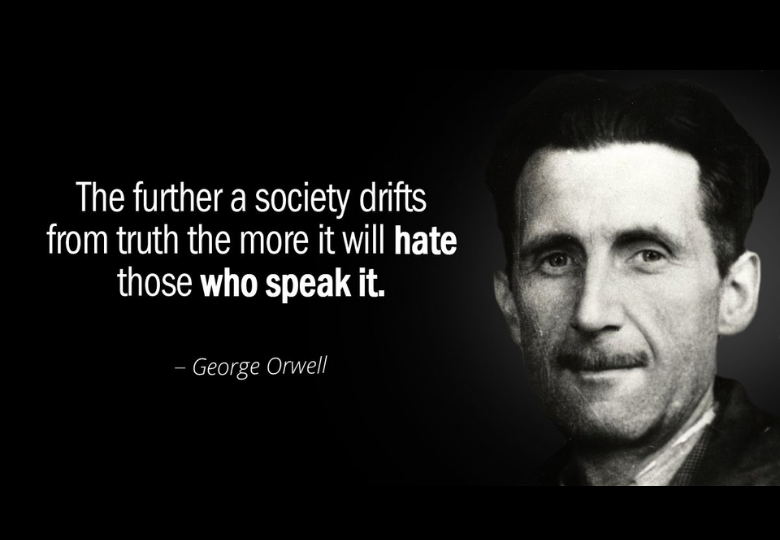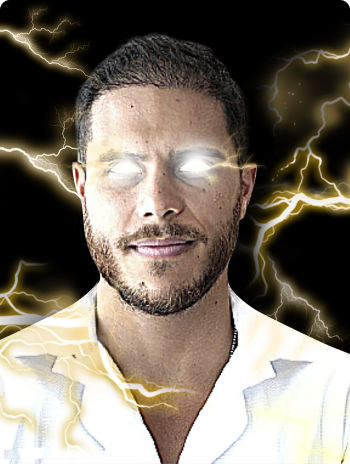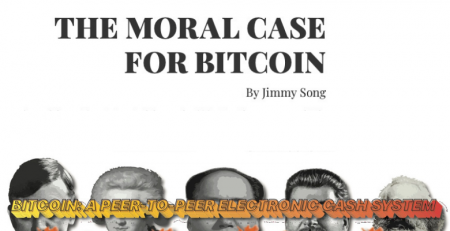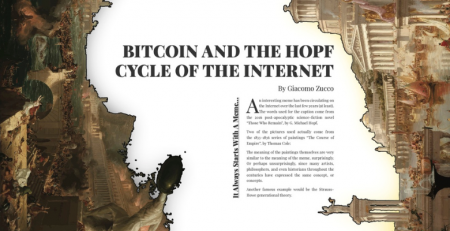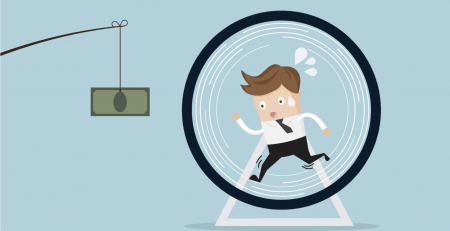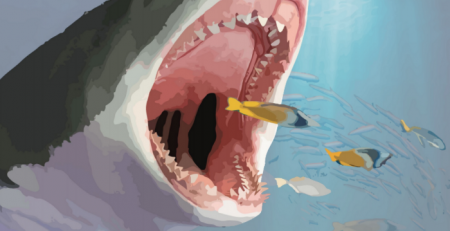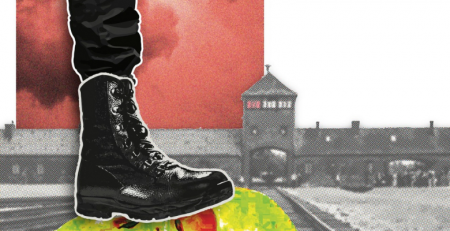Utopian Dystopias
Huxley and Orwell were both right
“The perfect dictatorship would have the appearance of a democracy, but would basically be a prison without walls in which the prisoners would not even dream of escaping. It would essentially be a system of slavery where, through entertainment and consumption the slaves would love their servitude”
– Aldous Huxley
Huxley, who wrote more than 50 books, warned us of a future in which the ultimate dystopia is ushered in via precision engineering, mind altering substances, constant dopaminergic entertainment and the removal of any pain, suffering, struggle and [therefore] meaning in life.
Orwell took on a more somber tone in his seminal work; 1984, warning of a tyrannical dystopia where the thought police monitored everything you say and do, and through the use of doublespeak and the constriction of vocabulary successfully stripped life of all its meaning and colour.
If 2020 has shown us anything it’s that too few read their books or heeded their warnings. It’s also shown us that the real dystopian future is likely to be a blend of Brave New World and 1984;
Brave New 1984
It shouldn’t come as much of a surprise though. The most effective motivation has always been a blend of carrot & stick.

So….
What the hell is going on, how did we get here, and wtf can we do about it?
If you’re reading this, you can probably sense that something is off, so let’s not restate the obvious. But…what might not be as easy to do is put a finger on “what” is wrong, “why” it’s wrong or “how” it’s wrong, or for that matter, how to properly articulate each and therefore, what we can do.
That’s what I’m going to attempt here.
This is NOT going to be some intellectually lazy conspiracy theory laden exposé blaming it all on the ‘Lizard people’, or some grand plan run by old white men behind a curtain, because I don’t think reality is that simple or straight forward. I’ve always had a problem with conspiracy theories because of this.
Whilst I’m sure there is scheming and plotting going on behind closed doors, complexity is real, and life is the ultimate complex system.
I don’t believe we got here via some grand plan, but through trial, error, success, failure, hubris, ignorance, humility, survival and the entire mash up of decisions & directives made along the way.
And likewise, the current age of “nation states” is likely an evolutionary anomaly in many ways just part of the trial & error process that life itself has to experience in order to learn. For every 10 pathways that open, 8 might fail and from the two that succeed, another 20 open. This is the story of evolution.
If we zoom out to a grander timescale, this period will be viewed as an evolutionary aberration, in which “life” (the greater force that permeates all of existence) experimented with something because the incentives existed (see ‘returns to violence’ in The Sovereign Individual), and as with all complex systems, the ineffectual pathways failed whilst the pathways or processes that were most aligned with natural law, sound principles and were Lindy compatible, succeeded.
Homo Sapiens [we] are the latest evolutionary experiment, and we are all LARPing our way into the history books, assuming of course we make it through the “great filter”.
Therein lies my most significant personal concern.
I know that central planning will not work. You don’t have to be a genius to realise that. My fear is the central planners destroy everything around us similar to how the USSR nuked itself, and/or make all of humanity obsolete by unleashing an AI-style leviathan in its arrogant pursuit of the ‘ultimate utopia’.
The greatest risk is not the idiots succeeding, but the idiots blowing everything up and taking the intelligent and virtuous with them.
This is why I write. Because the only way to do anything about this stupidity and mitigate the level of damage is to (a) defund the current & future leviathans (Buy Bitcoin) and (b) spread the mind virus of sound knowledge, critical thinking and individual sovereignty.
Once this clown show collapses in on itself, it’s going to need humans with virtue to rebuild. If we can cushion the fall a little along the way, all the better.
So without further ado, let’s dig into how society has devolved into a quasi-dystopia whilst promoting a Utopian vision.
We’ll start with some concepts to help us understand the choices made along the way.
Be careful what you optimise for
Whilst I don’t believe in determinism, you’d have to be a fool not to recognise that ‘direction’ has a material impact on ‘destination’.
This is why we can use logic, alongside the study of incentives and human action to determine, with a high degree of accuracy, what a series of ‘policies’ may lead to. This is also why the study of natural economics is so important.
Incentives matter
Every action has a reaction and you can use a-priori knowledge with deductive reasoning to “follow the breadcrumbs”.
Decisions on a particular path also tend to compound on each other because of the precedent set by the prior decision. This is very similar to reflexivity in the financial markets sense, or the Nazi Prison Guard concept, ie; those guards were not monsters on day one, but got there inch by inch as they continued to incrementally transgress their own values.
I explain this further in my short video “Tyranny is the deliberate removal of violence”.
This process is also known as “The Slippery Slope”.
The more the decisions compound in a particular direction, the more slippery the slope becomes.
Let’s now look at some ways in which society can be optimised, and the slippery slopes that can occur (or to a large degree already have).
Safety VS Freedom
Modernity has become obsessed with comfort and safety in lieu of freedom and discovery. The pursuit of deep and enduring meaning has been replaced with the perpetual chase for quick & superficial happiness.
There is an easy explanation for why this occurred.
The nation-state originally emerged as the most effective way to provide ‘protection’ of private property rights, whether via internal policing or through defence from external threats.
The undertone of the promise was always “safety & security”.
The problem occurred as this promise became a ‘service’ monopolised by the state. Over time it was found to be quite a profitable racket, and of course, this is where things began to degenerate. Why?
A monopoly can raise the price and/or lower the quality of a product or service, and nobody has a choice in the matter, particularly if it’s illegal to compete in providing a better service at a lower price.
With this precedent in place, the initial promise of protection devolved into “enforcement” by state henchmen who are immune to almost any consequence. I shouldn’t need to give you ANY examples after what you’ve seen this year.
This kind of moral hazard is only possible with the existence of a monopoly, and can only be perpetuated under the following Utopian banner:
“For your Safety”
Exactly what you see on the back of Creedy’s Vans in V for Vendetta (which is eerily accurate when you think about how this year has unfolded).
Why is safety bad?
Well it’s not bad per-se, but there are a few major problems when you optimise for Safety, particularly when you sacrifice truth, freedom & growth in the process.
First of all, nobody is actually ‘safe’.
Society, through the abstraction of complexity, gives you the illusion of safety by placing a thin veneer between your image of order and the reality of chaos, but the real world is a dangerous and at times, treacherous place, especially if you’re exploring, learning, expanding, growing & discovering.
Safety implies living within the known, and operating within a zone of comfort. By optimising for safety, something needs to ‘give’, and what gives is freedom & growth — the two most elemental components of life.
This is fine when the decision is made on an individual level, but becomes a problem when all of society is optimised that way, or worse, forced to comply for “the good of everyone”.
“The wall that protects you, will one day imprison you”
– Tony Robbins (I’m paraphrasing)
Second. You also have subsequent order effects when optimising for safety, which include:
- the emergence of the nanny state,
- the weakening of the human psyche because it has nothing meaningful to push up against,
- the weakening of the individual, because it is adversity, struggle and danger that build strength, courage and depth, and,
- the removal of personal agency & responsibility, and their replacement with dependency and fragility.
These trends are absolutely evident all throughout modern society. We no longer do what we think is right but wait for an ‘expert’ to tell us, and then wonder why we feel empty inside. Modern psychologists are then trained to reinforce a sense of victimhood and prescribe us pills in order to distract us from the real problem.
Viktor Frankl, the psychologist who survived Auschwitz and wrote “Man’s search for meaning” did some incredible work showing how prosperity & affluence (ie; safety) is linked to the rise of suicide in modern societies. It all emerges from the lack of a meaningful problem or challenge to push up against.
This is where the Utopian ideal of safety gets us.

At an individual level safety is needed but I don’t believe it’s an ideal worth fighting, living or dying for. It’s a low level human need, at the very bottom of Maslow’s hierarchy, but nothing to aspire toward.
It might be important when you’re a newborn or when you’re in your twilight years, but it’s NOT the way to optimise for life.
At a collective level, it sacrifices freedom, meaning & growth, which are the most important elements of a functional society.
Some of the safest people are slaves, prisoners, captives & law-abiding citizens of North Korea.
Can you have freedom if you optimise for safety?
Perhaps at an individual level, but not when there is a monopoly who can make mandates to force you to be ‘safe’, which is where we are now.
Can you have safety if you optimise for freedom?
Yes. But it involves responsibility and comes with a cost. Which is fine, because a free market will drive the cost down over time.
Which brings me to my next comparison.
Rights VS Responsibilities
So called ‘progressives’ run around claiming new “rights” every week, without recognising that conjuring up a right for one person creates a responsibility for someone else!
I would argue that we only really have ONE right, and that is the right to choose. All others fit into two categories:
- They can be boiled down to “the right to choose”, ie; the recognition of the free & sovereign individual.
- They are a ‘made-up right’ which is someone else’s responsibility, in which case they’re not a “right”; but a demand on someone else, and thus quite often an infringement on another’s natural right.
This is extraordinarily important to understand.
Systems are like ledgers, ie; they balance. Most ‘intellectual yet idiots’ (IYI’s) cannot seem to comprehend that in this universe, you cannot do anything in isolation. All actions have a reaction, and all equations must balance.
So when stupid people say that “housing is a human right”, they don’t stop to think about who is then obligated to actually build it, nor where those finite resources will come from, NOR in what order everyone will be given a house.
The proclamation of rights upon rights upon rights, especially in the context of identity politics and outside of the context of fundamental economic reality is the absolute height of human arrogance.
The only right you have is to choose to do something about your life, ie; act, or not (which is also a choice). These will lead you toward a destination which is determined by the consequences of your actions along with that randomness variable we call ‘luck’.
Taking responsibility for this process is how we build strong societies made up of strong, intelligent and conscious individuals.
Does this preclude the ability for someone to provide a product or service and then take on the responsibility for you? NO. That’s why we have free markets! The idea that you have to know everything is preposterous. A free society of responsible individuals is one in which they can choose to voluntarily pay for a product or service to meet their needs, that someone else has taken on the responsibility to provide.
We don’t seem to recognise this anymore in the ‘paradigm of the state’.
No longer do we have a choice to take responsibility for where we want to educate ourselves or our kids, what the product of our labour is spent on (taxes go into paying for bureaucrats, wars, more stupid roads, subsidies to monopoly corporations, socialised mistakes of other citizens, etc), and now in 2020, who we can spend time with, where we can work, where or when we can go out, our health, how we feel (asymptomatically sick) or even what we want to put into our own bodies.
This is another failure of the Utopian dream.
It’s in reality a dystopian nightmare where the group who screams loudest about “their rights” uses the state to force others to be responsible for providing them, until the entire thing becomes a war of who can scream loudest, and of course we burn through all our capital (human and natural resources) at which point there is nobody left to take any responsibility anymore.
This is what happens when you incentivise group-identity rights over individual responsibilities. And it can only last so long as this modern house-of-cards form of indentured servitude lasts.
Which it fundamentally cannot. The pendulum will swing,
The Renaissance of Responsibility
I truly believe we are in the age of “The Renaissance of Responsibility”.
Bitcoin is the centrepiece of this revolution and it gives us an opportunity to bring society and life back toward robust natural order.
It places the individual at the centre once more, it lowers the cost of defence, increases the cost of attack, and sets the foundation to build strong societies made up of conscious individuals.
Equality VS Diversity
Finally, we have the almost-mutually-exclusive concepts of equality and diversity.

I’ve discussed this in the past and made the point that you cannot have diversity when you have a message of “equality” cloaked in a mandate for conformity.
Diversity is perfectly natural because life is about experimentation.
It comes with its own balancing mechanisms, so if you experiment too far on the fringe or in ways that cut against the grain for too long, don’t be surprised at failure, but this natural truth-seeking process is fundamental to life.
Equality on the other hand is abhorrent. It doesn’t exist anywhere in nature and it is completely tone deaf to simple realities such as the fact that we’re all unique individuals with different skills, likes, talents, drives, values and ideas who ALL individually value everything subjectively!
Life is complex, and there is no equality in any complex system, other than the open exposure to randomness on all life forms.
Nassim Nicholas Taleb actually puts it best in one of his remarks in the book “Skin in the Game”:
True equality is equality in probability
In fact, this is at the root of his entire thesis. Inequality will always exist because we live in a dynamic system. Things are ALWAYS changing, no position is static, evolution & life marches on.
Bruce Lee, another of the great philosophers of our time always used water and its flowing nature as an example for life and how to live.
He was onto something, because running water is alive, whilst static water grows stale. And so it is with life.
We must ensure that the fluid, dynamic and ergodic nature of reality is not interrupted by IYI progressives introducing mechanisms that attempt to ‘fix’ things in place whilst blindly parroting empty Utopian ideas like ‘equality’ and ‘equity’.
We have to recognise that the only way to ensure that the game fair and more importantly that life can continue, is to ensure that there is skin in every game, or in other words; responsibility.
Skin in the game prevents systems from rotting
– Nassim Nicholas Taleb
An excerpt from Skin in the Game is perfect here too:
Dynamic (ergodic) inequality takes into account the entire future and past life.
You do not create dynamic equality just by raising the level of those at the bottom, but rather by making the rich rotate — or by forcing people to incur the possibility of creating an opening.
The way to make society more equal is by forcing (through skin in the game) the rich to be subjected to the risk of exiting from the one percent.
Skin in the game actually raises the standard for all because it optimises for progress, penalises mistakes, openly distributes randomness and converges on truth. The interesting effect is that society becomes more egalitarian in nature, but not stagnant.
What we have today is a system in which responsibility and risk are socialised. In Taleb’s words again; “No downside for some means no upside for the rest”.
Any form of wealth control tends to have the perverse effect of locking people with privileges in their state of entitlement and in the process locking those without, OUT. The system grows stale because through regulation, not only are monopolies created, but so are the secret ‘clubs’ behind closed curtains.
The only solution is to allow the system to naturally destroy the strong, not because they’re strong, but because they grew fat, lazy, slow and invaluable whilst the younger, swifter, better, smarter competitor took over.
The circle of life is fundamentally incompatible with any of these static, equality focused utopian ideals that politicians, bureaucrats, academics, central planners and the intelligentsia would like to have you believe.
All they want is no downside in isolation. It doesn’t matter that the downside & risk is borne by you.
Life, like freedom, is Messy
“Life’s perfection is found in its imperfection”
Life is beautiful because it’s free. It exists in the limits or bounds of a few objective realities that apply to everything and everyone, all of this time, without exception.
Within these bounds, anything ‘technically’ goes, but over time, through evolutionary trial and error, life learns, adapts and evolves around core principles that we can deduce as a-priori truths or natural laws.
This process is messy. It’s not clinical, and it is certainly not sterile.
Life has tried many things and Homo Sapiens are the latest experiment on a long list of experiments since the primordial ooze.
Our species is unique in that (as far as we know), we’re the only species aware of not only our birth, but our inevitable death. We are conscious of our own and (mostly) others’ consciousness.
Is this a feature or a bug?
Are we an anomaly or is there something rooted in evolutionary reality here that aligns us with the greater flow that is life?
I prefer to believe that it’s a feature and that we’re a manifestation of the ever-experimental nature of life and certainly part of its continuum.
But I do also recognise that we’re able to use our powers of cognition to deviate from the evolutionary principles of life (at least for a while) and as we’ve become scientifically and technologically more adept, we’ve also more become arrogant and ignorant.
We’ve distanced ourselves from nature, we’ve created a separation and through unrivalled hubris have proclaimed ourselves gods — well, at least the central planners & bureaucrats have — I shouldn’t speak for everyone.
The problem with this arrogance is thinking we can now diverge from billions of years of evolutionary wisdom and make ‘life’ sterile, pre-planned, centrally managed, completely clean, fixed and safe.
The irony is that this entire Utopian idea of life is anachronistic to the very essence & reality of life. It literally says that:
“We can make life better by taking life out of the equation”
This is so incredibly false and when you realise it, it begins to dawn on you why we’re at the precipice of a paradigm shift of significant magnitude.
We can only deny reality for so long. Gravity catches the fool who jumps off the cliff, and to channel Ayn Rand once more; A will always be A. Lying to ourselves might make us feel good for a while, but it’s not an effective long term strategy, and will end in ruin.
All I can hope is that we’ll arrive back at truth before irreversible damage is done. This is why Bitcoin is such a powerful tool, and I believe it’s our duty to not only buy & hodl it in order to grow its economic weight, but to spread it.
Bitcoin is life because it embodies raw, organic, objective truth.
Utopias are death, because they embody sterility and are built on a foundation of lies.
Speaking of truth, I will introduce a concept I’ve been working on for my new book in this essay because I believe it aligns well with the topic.
The Table of Truth
I’ve been trying to conceptualise a mental model for a series of objective truths or natural constraints within which we are all born and must live. I’ve decided to call it the ‘Table of Truth’, because there are “the four legs of objective reality” and “the table top of subjective truth”.
I’m sure there are praxeologists, natural economists & philosophers who have all previously discussed each of these and have subconsciously inspired me to create this analogy, but I hope my distillation here helps spread the ideas further.
These truths (as with anything else in life) we can choose to ignore, but know that it’s only to the detriment of either our own lives or the lives of our future selves and generations. They are as follows:
The four legs of objective reality
- We live in a world with finite resources, that are arbitrarily spread around the Earth.
- We live in the dimension of time, which is fixed, finite and moves ‘forward’.
- We manipulate / transform energy in order to live & act. It is also fixed & finite.
- Time’s uni-directionality means we live with uncertainty, ie; we cannot know what’s going to happen in the future.
The table top of subjective truth
We all value everything subjectively, because we are all unique individuals. We may have similarities, we may share values, we may form friendships, groups and echo-chambers, but we are all fundamentally unique individuals and value everything differently.
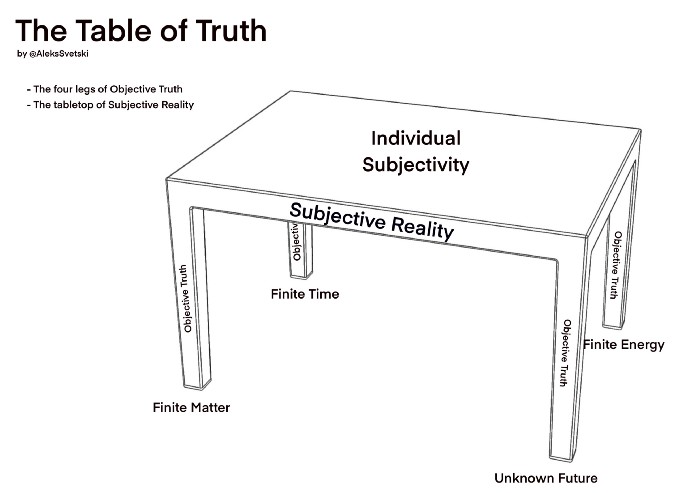
With that in mind, we can deduce a few other important truths and ideas:
- Private property is essential to our survival as a species. It’s not some cultural creation but an evolutionary truth and how nature imparts “skin in the game” at the biological level.
- Private property is the only mechanism aligned to the table of truth and is the only way we can transcend the tragedy of the commons we currently live in.
- Capitalism is the system whereby the most efficient use of capital is employed in order to maximise the returns on energy and resources. This can only function with private property at its centre.
- The state distorts this and therefore skews both capitalism & private property, resulting in monopolies, indentured servitude and the destruction of our natural & human capital via the tragedy of the commons.
- It’s only through VOLUNTARY exchange that we have freedom, and it’s from force or claims over our property via involuntary means that we must each be able to protect ourselves.
- CONFLICT IS NATURAL and will always exist — the table of truth necessitates this. But, on a local level conflict is more easily resolved especially when the incentives to trade and cooperate exceed the incentives to rob, pillage and pilfer.
- Bitcoin is the alpha-omega of private property and voluntary exchange. It lowers the cost of defence whilst increasing the cost of attack. As such it is the central tool in helping us get beyond the great filter.
There are many more to explore, but let’s leave it here and move onto how the Utopian ideals always lead to Tyranny.
Exploring the deductive paths to each of the above will be saved for my book because they need a chapter each.
The ramifications of the Utopian ideal.
Sometimes images & videos are better than words, so I’ll link a few here:
Hundreds of police surrounded Adamsons BBQ, in exceptional gestapo style, for everyone’s “safety”.






The Problem with Tyranny
Is that it’s never believed to be tyranny.
On the one hand you have the double speak:
- North Korea calls itself the “Democratic Republic of North Korea”
- Communist China calls itself the “People’s Republic of China”.
- The World Bank, IMF & ECB calls the money they print out of thin air “the European people’s money”.
And on the other you have genuine idiots like AOC, Greta Thunberg, Ray Kurzweil, De Grasse Tyson and others whose ideas have no grounding in reality, and will either send us back to the Stone Age (Green new deal) or to a Dystopian matrix-like future.
Real tyranny is a utopian belief system that denies reality.
The idea that we should “transcend all pain”, “erase all limitations” or “eliminate all problems” is at the core of all tyranny, and where the true flaw in the logic of utopia lies.
Ayn Rand was prescient and incredibly accurate when she said “Evil is when you’re made to believe A is B”. This denial of objective truth and reality is what gives birth to the evils that are Nihilism and moral relativism.
Emotions are what make us human and where the colour of life comes from.
Meaning comes from the struggle, obstacles, challenges and pain in life. This is where depth of character is built.
Purporting to remove emotions, pain, struggle & meaning are the pathway to death in life.
Conflict is essential
Tyranny emerges when you believe there is the possibility to surgically remove things such as hardship & conflict.
It emerges when you think in terms of absolute utopias and you don’t recognise the reality of a scarce earth, scarce resources and human beings who are all DIFFERENT.

Diversity, disagreement & discrimination are the Petri dish of life, and unless you believe in a future where all emotion, diversity and colour is eliminated, you MUST come to the realisation that conflict will always exist.
The question is how to manage it & use it. NOT how to eliminate it, because the only way to eliminate conflict is to eliminate life.
Democracy is a Tragedy of the Commons
Democracy is antithetical to the natural order of private property and individual agency.
It’s just another form of lauding over another’s property, but one where you feel like you have a say, but are still mired in the commons. Your personal opinion, your desires and your wants are secondary to the collective.
It’s an incredibly inefficient and ineffective way for people to collaborate or cooperate, especially at large scale. Perhaps in the context of a small community, where the ‘vote’ is proportional to the individual’s input or property, a democratic system of governance may work, but across large numbers of people, it is simply one group’s will over another’s.
It makes it legal to laud over your fellow man or woman, it replaces private property & law with public property and law, so we’re right back to the tragedy of the commons, and worst of all, in a democratic-nation-state, the real benefactors of this public property are the caretakers in office.
Moral Hazard much?
Don’t believe me?
Here’s your new overlords in action:

You might want to ask yourself the following:
- If you own nothing, who will own everything?
- Is there a better candidate than the governments who have trillions in debt?
An excerpt from Ayn Rand’s Atlas Shrugged fits in perfectly right now:
Human rights VS property rights is a fraud.
One cannot exist without the other, and when property rights are violated for some made up human rights, we’re right back at slavery.
Only a ghost can exist without material property.
Only a slave can work with no right to the product of his effort.
The doctrine that human rights are superior to property rights simply means that some human beings have the right to make property out of others.
Since the incompetent have far more to gain from the competent than vice-versa, it means the right of the incompetent to own their betters and to use them as productive cattle.
Whoever regards this as “human” and “right” has no right to the title of human.
– Ayn Rand
The fable of the failed Utopia
My final example of how the nice-sounding ideas of the Utopians turn in on themselves and result in destruction is beautifully explained in the following short story.
I don’t know who to credit this to, because I found it on one of the “Bitcoin Plebs” telegram groups I am in. If you want to be around intelligent people, get around Bitcoiners. Iron sharpens Iron.
Also, as an aside note: I believe teachers such as this one would emerge if we have true private schooling.
TEACHER FAILS ENTIRE ECONOMICS CLASS:
An economics professor at a local college made a statement that she had never failed a single student before, but had recently failed an entire class. That class had insisted that socialism worked and that no one would be poor and no one would be rich, a great equalizer.
The professor then said, “OK, we will have an experiment in this class on this plan”. All grades will be averaged and everyone will receive the same grade so no one will fail and no one will receive an A…. (substituting grades for dollars — something closer to home and more readily understood by all).
After the first test, the grades were averaged and everyone got a B. The students who studied hard were upset and the students who studied little were happy. As the second test rolled around, the students who studied little had studied even less and the ones who studied hard decided they wanted a free ride too so they studied little.
The second test average was a D! No one was happy. When the 3rd test rolled around, the average was an F.
As the tests proceeded, the scores never increased as bickering, blame and name-calling all resulted in hard feelings and no one would study for the benefit of anyone else.
To their great surprise, ALL FAILED and the professor told them that socialism would also ultimately fail because when the reward is great, the effort to succeed is great, but when government takes all the reward away, no one will try or want to succeed.
These are possibly the 5 best sentences you’ll ever read and all applicable to this experiment:
- You cannot legislate the poor into prosperity by legislating the wealthy out of prosperity.
- What one person receives without working for, another person must work for without receiving.
- The government cannot give to anybody anything that the government does not first take from somebody else.
- You cannot multiply wealth by dividing it!
- When half of the people get the idea that they do not have to work because the other half is going to take care of them, and when the other half gets the idea that it does no good to work because somebody else is going to get what they work for, that is the beginning of the end of any nation.
In Closing.
Life is what happens at the nexus of chaos and order. It occurs within a wide set of bounds or limits. We know them as Gravity, the speed of light, the second law of thermodynamics, the direction of time and a series of others.
They apply to everyone, to all things, all the time and without exception.
In between those bounds, life is free to choose. And whilst anything technically ‘goes’, what tends to be evolutionarily sound is that which adheres to time tested, Lindy compatible natural principles.
We can choose to live in a way that deviates from the flow of life, but that kind of aberration can only go so long. The current of life is too strong and it frankly doesn’t give a shit if we just become an evolutionary mistake along the way.
You can only fight reality for a short period of time, but like Ayn Rand said; “A is A”, so when Gravity catches up with you, don’t be shocked at why you’re falling down the cliff face after you jumped.
It’s much like the Taoists or peak performers would say. You can choose to live “in flow” and find harmony with life & nature, or you can choose to resist and fight reality.
One has a future, the other has at best, a lesson.
Bitcoin is the latest constant, which sits beyond the event horizon and our ability to change it toward our own ends.
This is what makes it special and will allow the experiment that is humanity to continue and prosper.
The Utopian ideals that these unelected organisations such as the World Economic Forum (WEF), the WHO, the World Bank or the IMF are a desperate attempt to play musical chairs on a system of governance that’s become the Titanic.
And just like playing musical chairs on a sinking ship will do nothing to save anyone on board, neither will any action taken by any of the bureaucrats on board this ship.
They will tell you to be happy with owning nothing so long as they can stand on your head as the ship sinks.
The utopian fallacy
Utopias and the central planners who believe they’re achievable ‘if only’ the bureaucrats and intelligentsia had enough resources to make the calculations and the power to enforce the rules is the ultimate height of arrogance.
Life is a never ending process of discovery & learning.
A Utopian believes in [their idea of] ‘perfection’ or the existence of an end state and by extension that ignorance is an ideal worth striving for.
Totalitarianism is by definition the presupposition that we have total knowledge and can structure society in a complete & final form.
This is fundamentally false because we lack infinite knowledge and we cannot account for consciousness or randomness!
We will not conquer life in our pursuit of a sterile utopia, but we can certainly make an evolutionary example of ourselves.
The Utopian ideal is not “the way”.
Freedom and individual sovereignty is.
Having the humility to know that our assumptions and knowledge are incomplete and that progress is the process of trial and error is the path not only of life, but to a meaningful life — which is in essence, the meaning of life.
Aleksandar Svetski
Dec 2020

